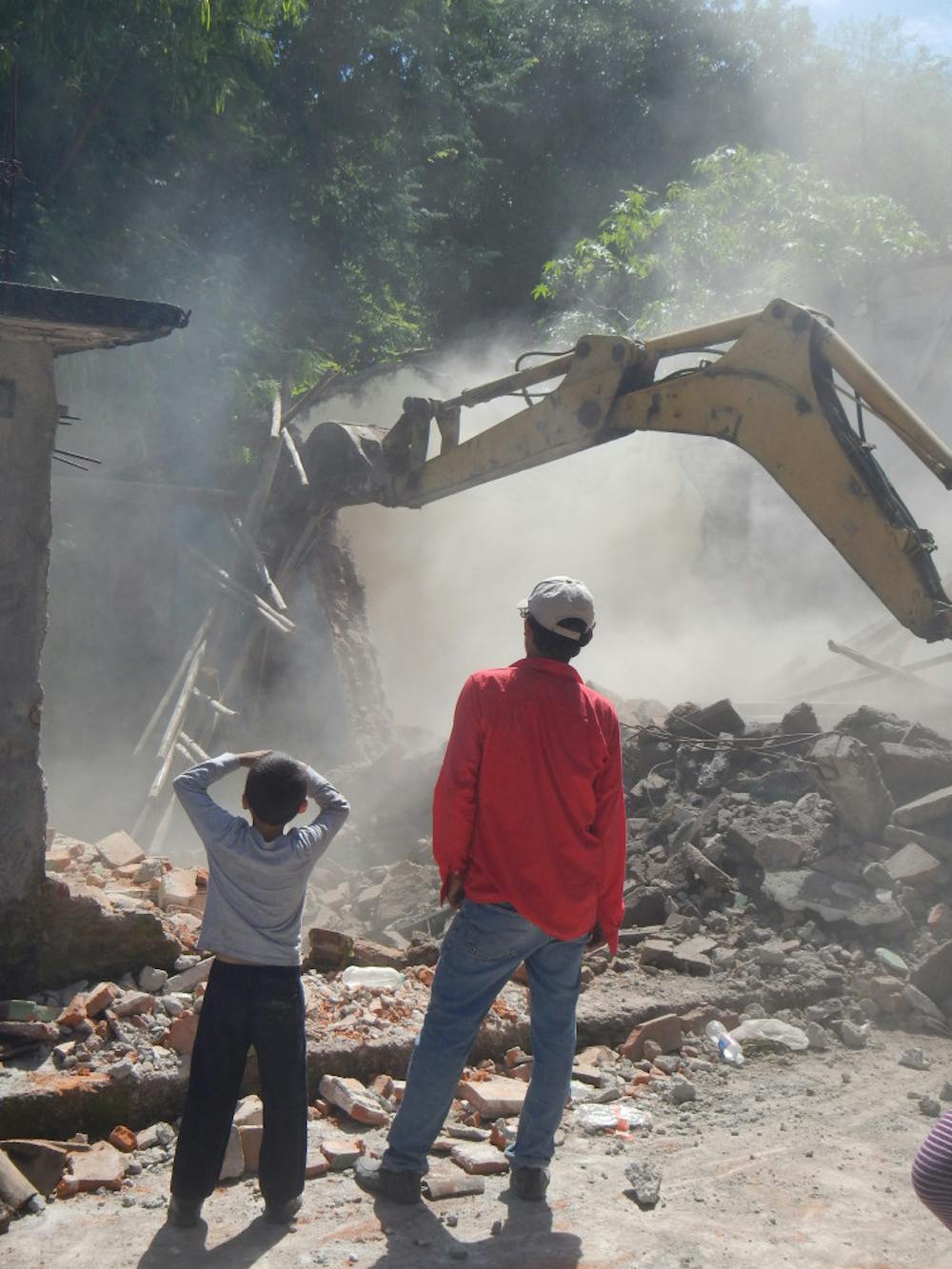For Antonio Sierra and Marinés de la Peña, it was never a choice to help out in Mexico.
It was necessity. It was about their home.
“Once you see what’s going on, you can’t not do anything,” de la Peña, 35, said. “You know what is happening, and you cannot just sit back. We know this community, and we’re going to stay here. This is our problem — if they go down, we go down as well.”
De la Peña and Sierra, two UF alumni from the School of Forest Resources and Conservation, have been assisting in Morelos, Mexico, since the powerful 7.1 magnitude earthquake rippled through the central and southern part of the country Sept. 19. They had practiced an evacuation drill just two hours before.
“The city was chaos,” said de la Peña, a UF visiting scholar in 2015.
For the past two weeks, the married couple has been organizing food, housing and donations for affected communities. They have raised nearly $5,000 for construction supplies, like metal roofs, to repair houses in the countryside — but still need more resources, de la Peña said.
The villages they’re assisting are poor and haven’t received the same attention as big cities, Sierra, 36, said.
“You can feel the grief, but I think you can also feel the gratitude,” said Sierra, a UF alumnus from 2016.
To help raise money, the two developed a website with pictures of the work being done and links for donation. Sierra said he’s grateful for the generosity of the UF community and other places internationally.
Paloma Carton de Grammont, a researcher coordinator at the School of Forest Resources and Conservation, has helped promote the website throughout UF. She said UF is a humanitarian community that helps beyond its borders.
For Carton de Grammont, the fact she can see the exact person her money is going to reassures her. On the website, families who received funds hold a board thanking donors.
She said the couple has no intentions of stopping their work, despite having jobs and lives of their own.
“They told us, ‘we’re not stopping until the funds stop,’” Carton de Grammont said. “As long as we keep giving them support, they’ll be there to help the communities.”
De la Peña estimates nearly 10,000 homes have been badly affected. In the initial few days after the earthquake, repair groups and volunteers helped clear debris and provide food — but many of the damaged houses still need to be cleared and repaired, leaving many poor residents sleeping outside their former homes.
“I don’t know if people know how big of a problem this is,” she said.
Like de la Peña and Sierra, all the people helping have been other citizens, not the government. She called the government “impotencia,” which means impotence, and said they needed to step up to provide aid.
“Right now there is a lot of aid coming from some other states around, a lot of people are collecting, but that’s going to end,” de la Peña said. “And the situation is going to be remaining in our state.”
A father and son watch their damaged home being demolished in the village of Contla, Mexico.
An elderly couple thanks the person who donated materials for their temporary shelter in Huatecalco, Mexico. Their collapsed home lies in the background.





